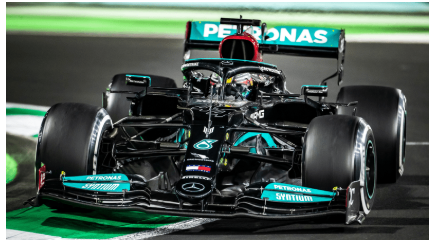 Motortopia Staff
.
December 06, 2024
.
Press Release
Motortopia Staff
.
December 06, 2024
.
Press Release

When you’re at a Formula 1 race, the air thickens with tension, the smell of rubber fills your lungs, and the noise—well, it’s electric. With the sounds of both the roaring crowds and engines, we mean that almost literally. But while the sound of the engines may still be there, a lot has changed under the hood in recent years.
Formula 1, known for high speeds and higher stakes, is no longer just about loud engines and burning fuel. It’s about taking racing technology to the razor’s edge. Today’s F1 motors combine the power of traditional combustion engines with the potential of electric technology in a hybrid format that’s reshaping racing as we know it.
So, are F1 cars actually electric? Not quite. But they’re not strictly gas-powered either. Instead, they’re hybrids, taking the best of both worlds—raw engine power and electric efficiency—to push performance to the extreme level required in F1. Let’s dive into the details of how electric motors have found their place in the sport and why hybrid technology might just be the future of high-performance racing.
The Shift: The New Age of Formula 1 Hybrid Motors
For decades, Formula 1 racing was all about raw engine power. But as the world started looking for new propulsion solutions, F1 began shifting too. In 2014, F1 introduced a new hybrid engine format that combined traditional internal combustion engines (ICE) with electric motor technology. This change didn’t just happen overnight—it was a thought-out move to improve fuel efficiency, reduce emissions, and draw more manufacturers and teams to the sport.
Today’s Formula 1 engines use a 1.6-liter V6 turbocharged engine—this is a reduction from the V8 2.6L engines used between 2006 and 2013, and the 3L V10s that were used pre-2006. But these engines are paired with electric motor systems that generate and store energy, turning a relatively small engine into a toe-curling, g-force inducing powerhouse capable of delivering speeds over 200 mph. The result? F1 motors are now an impressive blend of high-speed thrill and cutting-edge sustainability.
Continue reading How It Works: Hybrid Technology in Formula 1
Why Not Go Fully Electric?: Electric Motors in Formula 1
With all this talk about how electric cars have instant torque and unparalleled acceleration, you might wonder why F1 doesn’t commit to going fully electric. The answer is: It comes down to the unrelated factors of energy density and tradition. Electric motors alone can’t yet deliver the sustained, intense power needed for an F1 race without requiring massive, heavy batteries that would slow the car down.
Plus, part of F1’s magic lies in its sound and energy—the sensory overload of a high-speed race that feels more primal than modern. While electric racing leagues like Formula E are gaining traction, F1’s hybrid engines strike a balance between heritage and innovation, keeping fans thrilled with the roar of a turbocharged engine while moving the sport toward a greener future.
Continue reading How Hybrid Technology is Shaping the Future of F1
The Bottom Line: Hybrids Keep F1 Racing at Full Throttle
So, while Formula 1 motors aren’t fully electric, the hybrid engines they run on represent what’s possible in electric racing technology. By harnessing electric energy to complement the power of a turbocharged V6, F1 cars are faster, more efficient, and more sustainable than ever. The sport has shown that even in an adrenaline-fueled world, there’s room for progress.
In the world of high-performance racing, hybrids allow Formula 1 to push the limits while respecting the traditions that fans love. And as technology continues to evolve, F1 is set to prove that even the most powerful engines on earth can adapt to a new era. So the next time you hear that signature roar on the track, know that you’re witnessing the future of speed—powered by both fuel and electric.
We use cookies to enhance your browsing experience, serve personalized ads or content, and analyze our traffic. By clicking "Accept All", you consent to our use of cookies. Visit our Cookie Policy for more info.
Notifications
Share Link